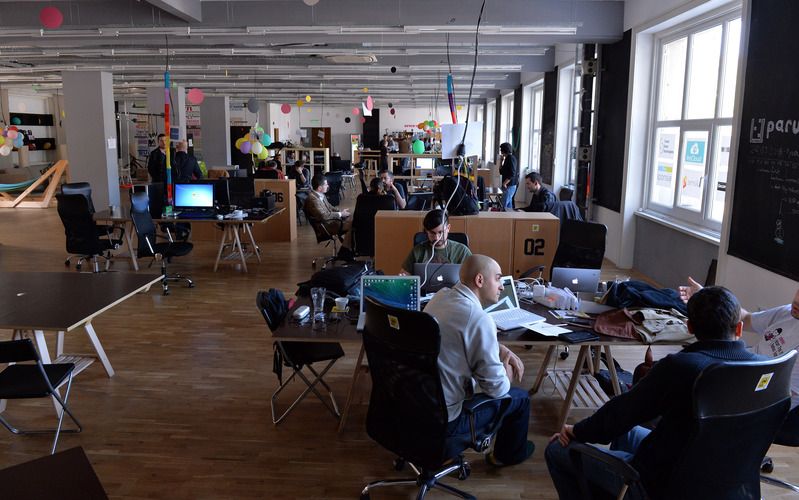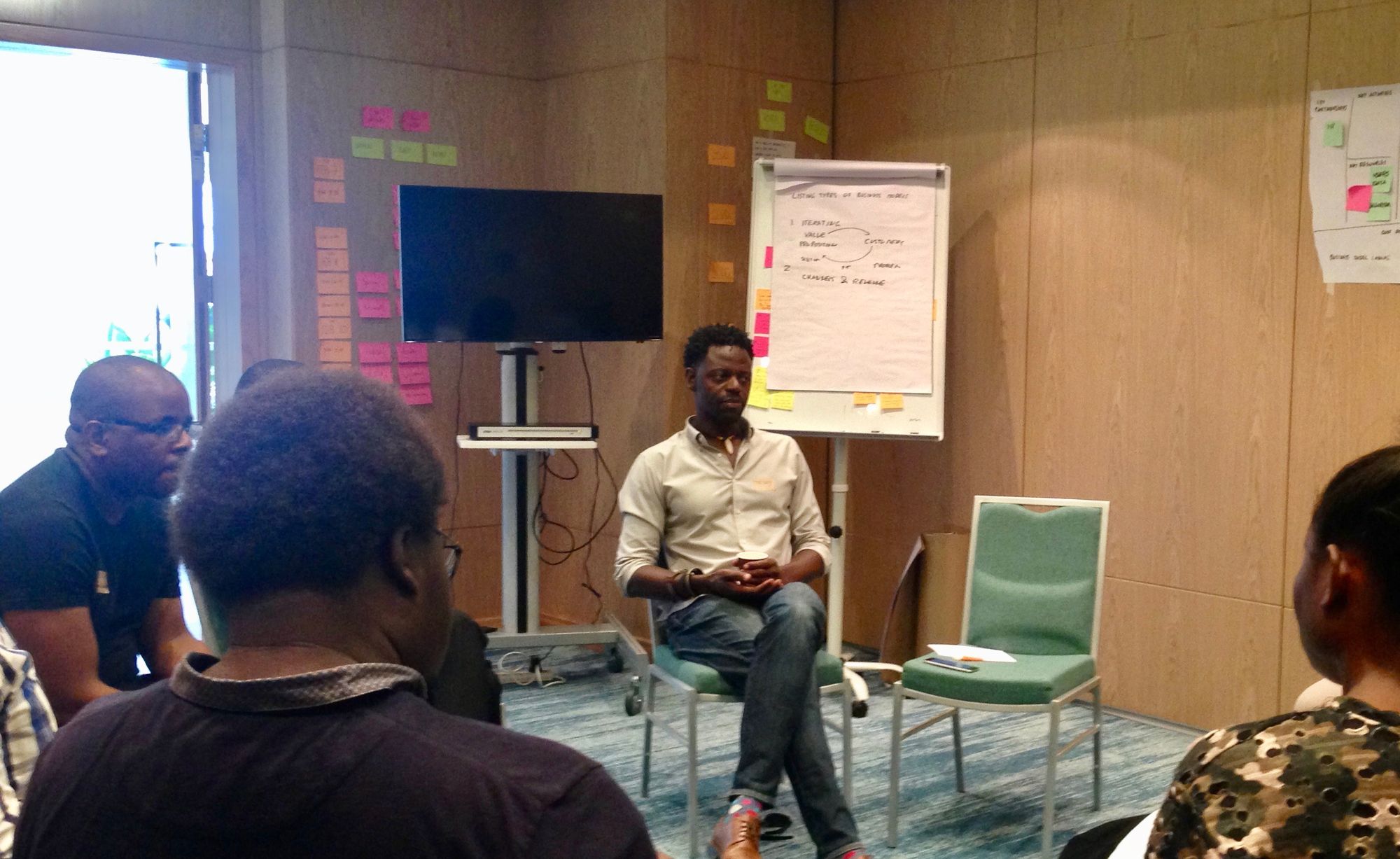Peer Learning is...
Accelerating
When learners are active, self-directed and know what they want, programs make a bigger difference in a supporting role. It's a matter of knowing when and how to make that shift.
Accelerating Agency
Peer advisory
Kelly Thompson's writing group carried her from her novice days to her bestseller:
We started out as a group of five, four women and one man, all with a variety of backgrounds and writing interests, as well as some variation in experience. We met every two weeks in a public space and did critiques of each other’s work. We began mostly with short stories and the occasional article or essay, but also some novel excerpts, and pretty soon, moved on to full novels.
Guidance doesn't need to come from experts. Learners develop their own critical thinking by advising others, and seeing the results of that advice. They can also spend more time analysing and identifying problems, which usually benefits more from attention than experience.
There’s nothing quite like getting a crit from another writer. They know so much going in about how it all works and they are the best at spotting your weaknesses. I also find that they're the best at being both gentle and honest, simply because they get it in a way that non-writers don't.
By forming peer support groups around common interests, peers can keep their progress on track by themselves.
Braintrust is a peer advisory format for entrepreneurs that we started in London and started to spread around Europe:
A group of 3-5 entrepreneurs commits to meeting for one hour, every two weeks, for two months. Each presents their PPP (plans, progress, problems) reports in 3 minutes, followed by a rapid-fire feedback discussion for 5 minutes. It's all timed, and the rules focus the feedback on learning goals, the methods used to do that learning, and the interpretation of the results.
The handout, which was co-written by the long-term participants explains:
Regular peer feedback helps us see the big picture and stay on track. You can think of it like going to a personal trainer, so you develop regular habits, but that the personal trainer is a group of your friends, so more about what you learn together.
It's not about business advice, but having extra pairs of eyes on where you're heading, how you're getting there, and how fast.
Block time for them to get to work
Knowledge retention and application suffer when learners don't have time to apply what they've learned.
Once an initial skillset is known, time to try it and assimilated it is needed. This takes time, so consider scheduling application time more than instruction time, and setting expectations that learners should raise their needs. This input then directs educational content.

There's a difference between getting the job done, and learning from the experience so that it improves everyone's work next time.
Explicit time for retrospection allows people to synthesise their experience, reflect, and decide how to change. Without it, people will be able to recall their experiences, and cite new knowledge, but that falls short of actually changing their thinking patterns and behaviour.
High intensity is common in education as well. From multi-day conferences, startup accelerators and long-haul post-graduate projects, both the educators and the learners put themselves under continuous, intensive pressure. The hours are long, the outcomes are uncertain and the stakes are high. They also need decompression time to reflect.
360 Feedback
Educators learn just as much as their learners, so we also make time to reflect, and structure this with a Retrospective format called 360 Feedback.
In a relaxing, post-project atmosphere, we usually do something fun before getting into feedback, to create a safe space for accepting criticism.
Each team member has a turn in the spotlight, and the other team members write bullet point observations: positive feedback, and suggestions for change. For example:
Pluses - please continue or do more of:
- You're always self-improving
- You're calm
- You figure out people, and help them find the best way to participate.
Deltas - please change:
- Reduce moving targets
- Take more time to teach people your ways
- Avoid overlapping projects
The receiver of the feedback listens without speaking until everyone has explained their points, and talked through concrete examples and stories. Then, the receiver can ask clarifying questions about that feedback.
There is no obligation to commit to acting on the feedback, but it is often discussed. "What if I do it this way next time? It's hard for me to do what you suggest, but I think I can improve by doing this instead."
The feedback is a gift - it needs time to sink in, and acting on it is left to the receiver's discretion.
Group advice
Self-directed learners hold a wealth of ideas to share about a problem. An off-the-cuff comment in a brainstorm is often enough to expose solutions, but some challenges need a diverse group to go deep.
Learners with low agency can be overwhelmed by the sheer onslaught of quick and fresh perspectives, but self-directed learners crave it. And they can more easily filter out what's not useful to them.
In groups where learners can see how their peers could help them solve a specific challenge, like a startup accelerator, we developed a 2-hour format called Solvers. Solver Sessions allow a single Challenger to have a particular challenge solved by a small group of peers (Solvers). In doing so, the Challenger also learns how they approach the challenge. They broaden their mindset, learn practical skills, and improve their delegation skills.
Ask the Challenger to choose a "Solve for X" objective that they're struggling with (not a micromanaged task) and a maximum of 4 people as their Solvers, ideally those with a diverse range of skills and approaches. Give them 10 minutes to explain their objective, the deliverable they'd like at the end of the sessions, what resources they do and don't have, and what they've tried so far. For the first 20 minutes, everyone can ask questions. After 20 minutes, the Challenger isn't allowed to speak or direct the team in any way. They must simply observe the their Solver team work until the end, when they give feedback on the deliverable.

When learners are motivated, and have started to show signs of self-direction, they still need help diagnosing their own needs.
By Mentors
Mentors and coaches are often in the best position to diagnose learners.
Their assessments are useful to direct the broader program, not just for the mentor to respond themselves. Asking mentors for simple, one-minute reports after each conversation reveals the most pressing and common learner needs. The report only needs to contain a small check-list and a few open-ended suggestions to be easily actionable.
By Peers
Peer coaching provides the similar insight to respond to learner needs. Peers can be taught to quickly diagnose each other, and while they won't have the same experience to anticipate and reveal problems, they have and advantage of deeper empathy of the learners' level, so can better reveal current perspectives.

A great substitution for panels at conferences are expert diagnostics, like Shark Tank, but then helpful. Instead of pitches, people jump on stage to present a challenge, which is followed by the experts teaming up to diagnose it with questions. Each session wraps up with the each expert making one short suggestion based on the group diagnostic.
With Progress Reports
When learners have their own projects, regular progress reports are a quick way to spot how you can help each individual learners best. Over time, the regular reports provide show how learners goals have evolved, or not; which struggles were solved and which were pervasive; and what the learner accomplished.
A common way of giving structure to progress reports is by dividing them into three sections plans, progress, problems (aka. PPP reports). The reports are usually done as simple emails every 2 weeks or month, with 2-3 bullet points under each of the 3 headings. At any point in time, know the best way to help each learner reveals common challenges to address.

Connecting learners to others with similar challenges is often enough for them to set their own path. And when learners get stuck, connecting them to someone with even part of the answer usually regains their momentum.
Link to domain experts
Startup accelerators build a network of experts, sometimes hundreds of people with deep skills in different technical areas, industries and markets. Fellowship and alumni groups also provide convenient access to a helpful expert. Explicitly offering access to the wider network around a few people's personal networks is an easy start. Or, thinking about it like a doctor, who will diagnose a patient and make a referral to specialist as needed. As those network activate and grow, they mature into more formal lists.
Mentor-to-mentor referrals
Mentors don't just provide learners with guidance, they provide connections. By default, mentors rely on their own personal networks.
Providing time for mentors to meet and learn from each other, or facilitating communication to share their current mentoring challenges, help them include other mentors when a relevant challenge emerges. An easy start is to distribute summaries of mentors' reports, which gives them all a bird's eye view to spot patterns across all the learners. This insight is useful to adapt the program itself. Also, look at mentors as learners themselves, and support them with their learning goals. This makes them more engaged and engenders a more open culture of sharing.
